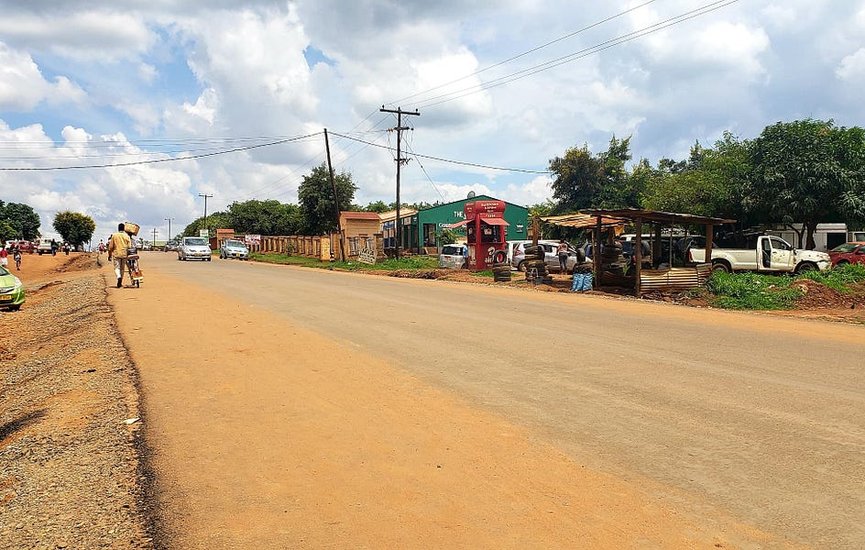The Chinese proverb “If you want to get rich, build a road first” finds both affirmation and complexity in Malawi, a landlocked country in Southeastern Africa where infrastructure development is increasingly seen as a catalyst for economic transformation. With 71.3% of its 20 million citizens living in extreme poverty, and agriculture employing over half the population, Malawi’s economic future is deeply tied to its ability to connect rural producers to broader markets. Roads, particularly those built with Chinese support, are playing a pivotal role in this effort.
One such example is the Karonga-Chitipa road, a 102-kilometer stretch funded by a $70 million grant from the Chinese government and completed in 2013. Before its construction, the route was dusty and nearly impassable, stifling trade and mobility. Today, the road links Malawi to neighboring Tanzania and Zambia, serving as a vital corridor for regional trade. Local entrepreneurs like Langifored Ndhlozi, who runs a car wash near the junction of the Karonga-Chitipa road and the M1 highway, credit the road with transforming their livelihoods. “Today, businesses are booming, and people travel easily because of the new roads,” he says, noting that he now employs seven young men whose families benefit from the income.
The ripple effects of road construction are evident in the stories of small-scale traders like Kettie Msukwa, who sells groceries along the Karonga-Chitipa road. She recalls how travel times between the two districts dropped from six hours to under two, opening up new markets and opportunities. Improved roads have also enhanced access to health care, education, and other essential services, contributing to a better quality of life. Road Authority CEO Ammiel Champiti emphasizes that roads not only create jobs during construction but also stimulate long-term economic activity and regional integration.
In the capital city of Lilongwe, Chinese-funded rehabilitation of the M1 road has reshaped urban mobility. Dual carriageways and six-lane roads have reduced congestion and travel time, with businesses springing up along the new routes. Tire fitter Suwareyi Twaili, who operates near the newly constructed highway, notes that car dealerships and service providers have clustered around the road, drawn by its strategic location. Chinese contractors such as China Civil Engineering Construction Corporation, Shandong Luqiao Group Co. Ltd., and CHICO are leading these efforts, with additional support from the EU and European Investment Bank.
Yet, the proverb’s promise of prosperity remains elusive for many Malawians. Economic challenges, including currency devaluation and a persistent fuel crisis, have undermined the benefits of improved infrastructure. In November 2023, the Kwacha was devalued by 44%, followed by another 25% drop, driving up transport costs and squeezing small businesses. Traders like Maggie Mweghogha and Steria Mulinda struggle to move their produce due to high fuel prices and unreliable transport, often losing goods to spoilage. “Having a good road is not enough,” Mweghogha says. “We need affordable and available fuel to make our businesses work.”
Despite these setbacks, there is cautious optimism. As Malawi approaches its general election in September, fuel availability at filling stations has improved, offering hope that stabilized costs will allow citizens to fully benefit from the country’s expanding road network. The proverb may not yet ring true for all, but for many Malawians, the road to prosperity is being paved—literally and figuratively—with each kilometer of tarmac laid across the nation.
